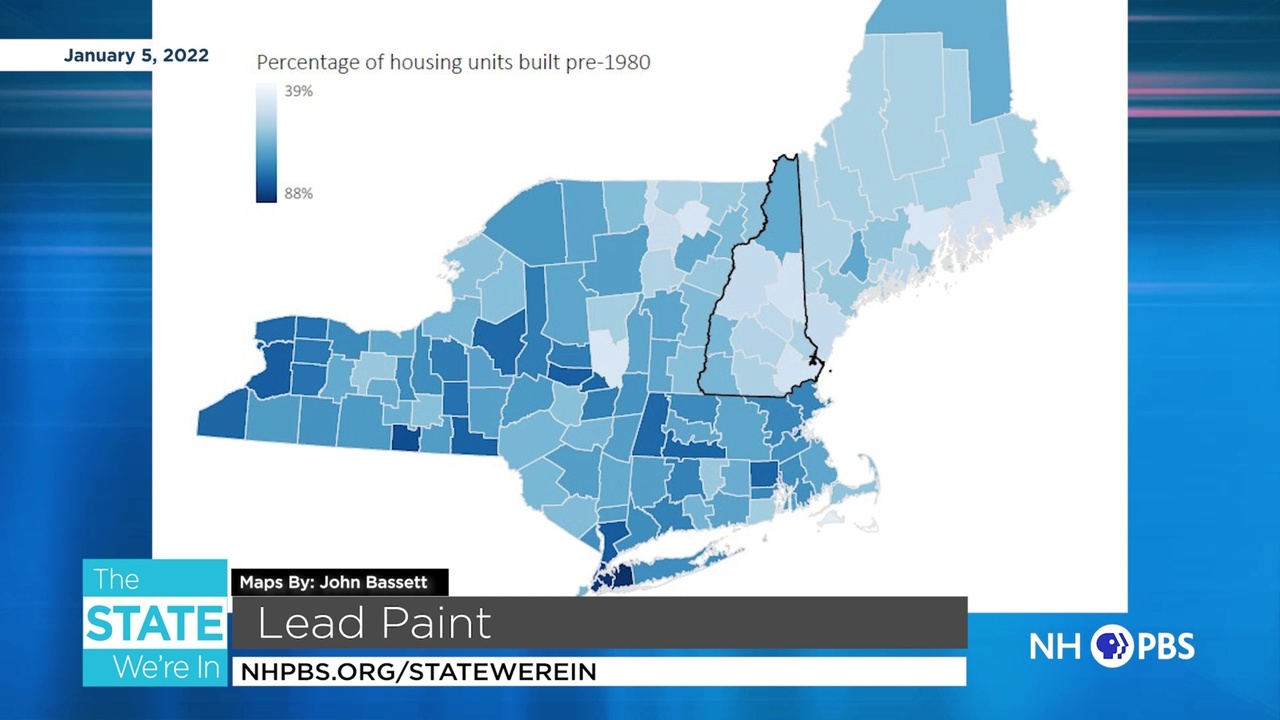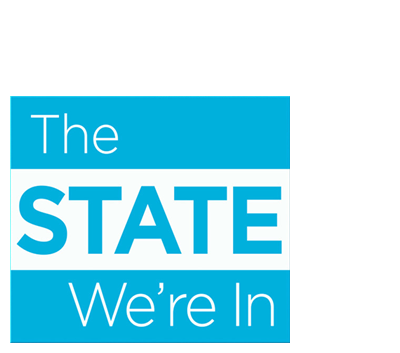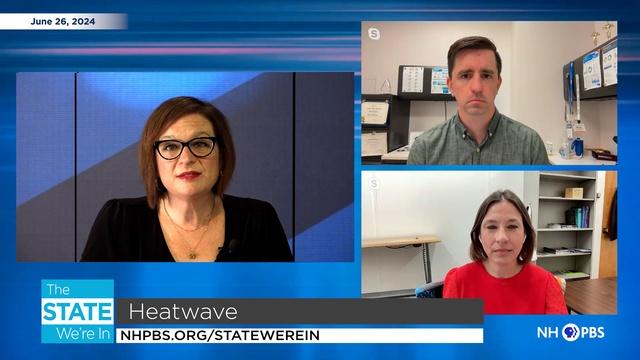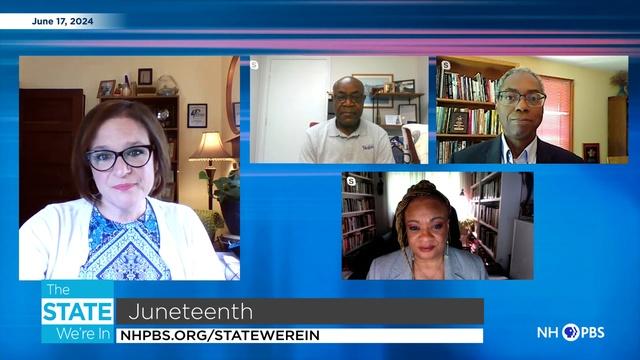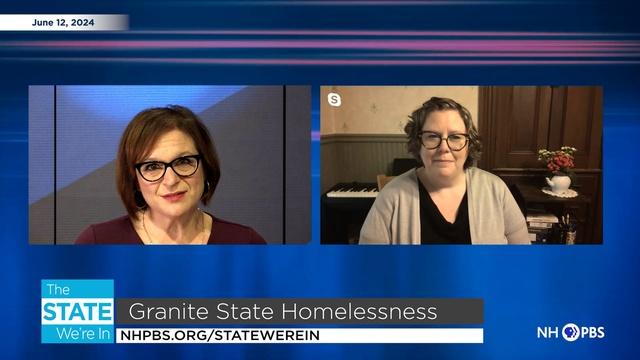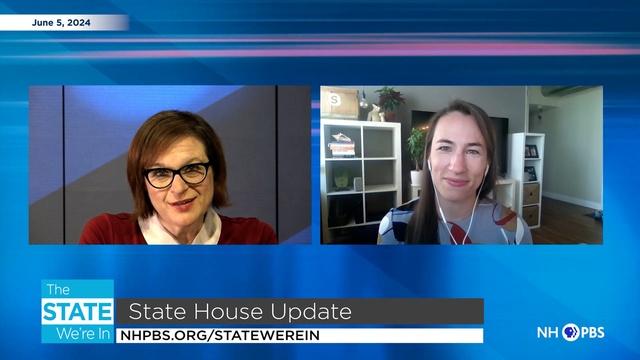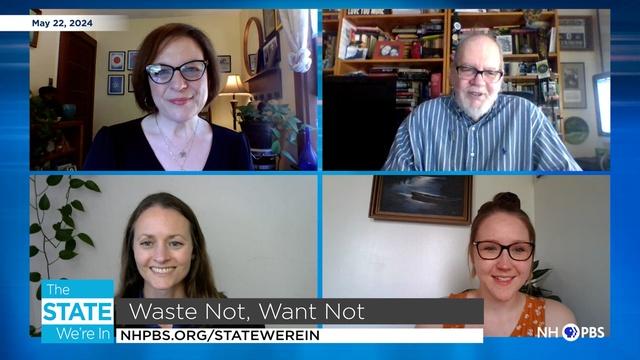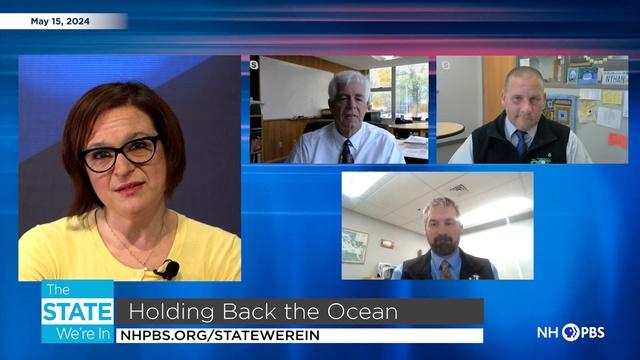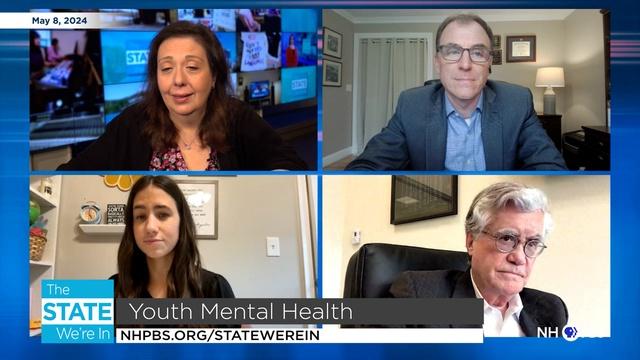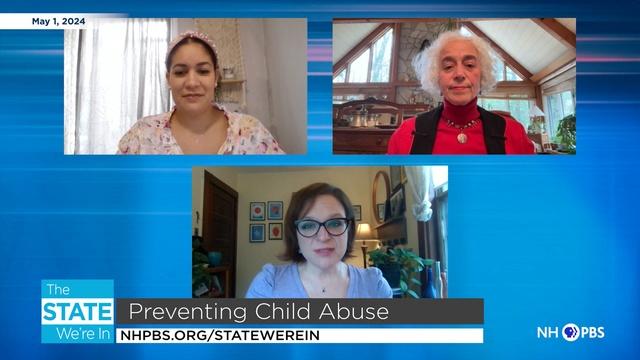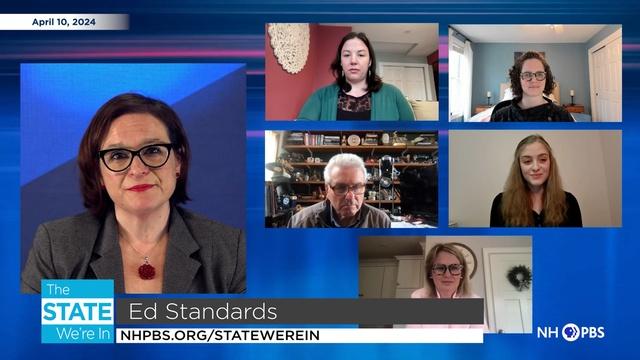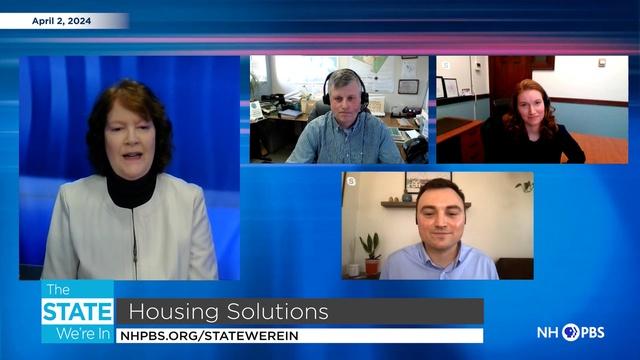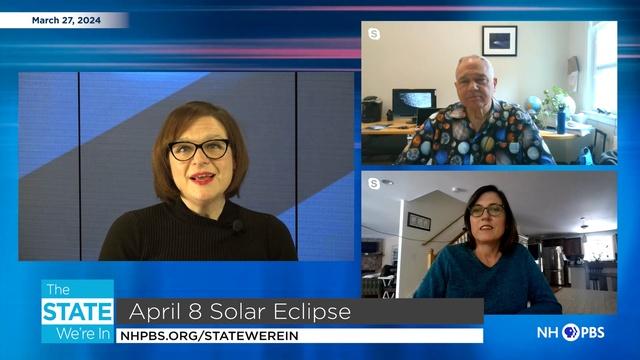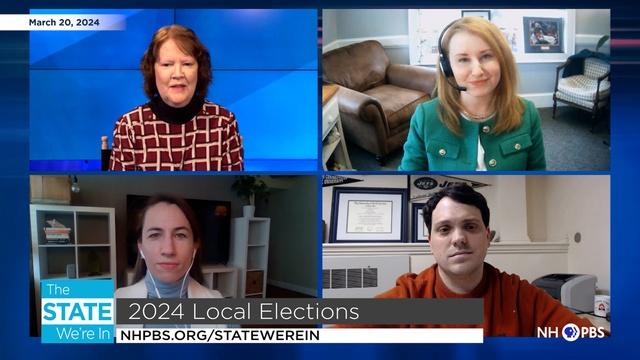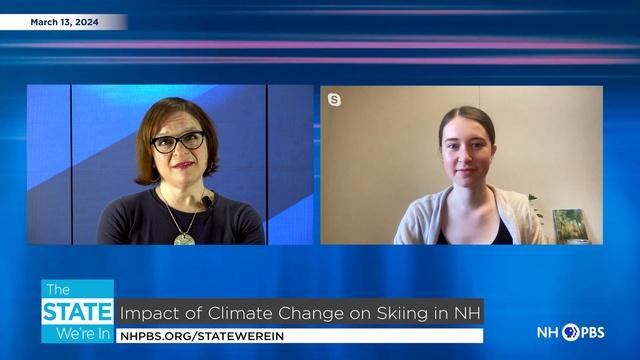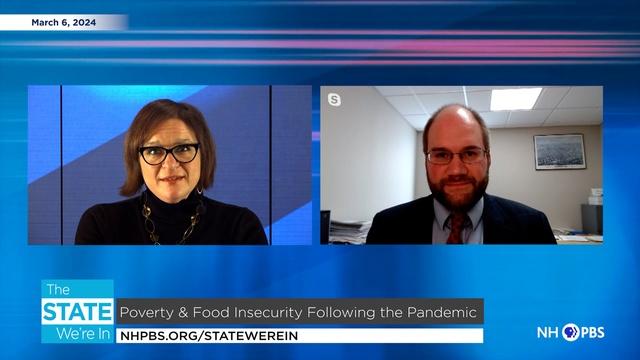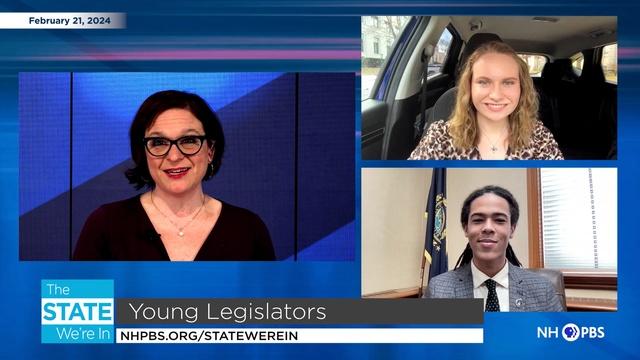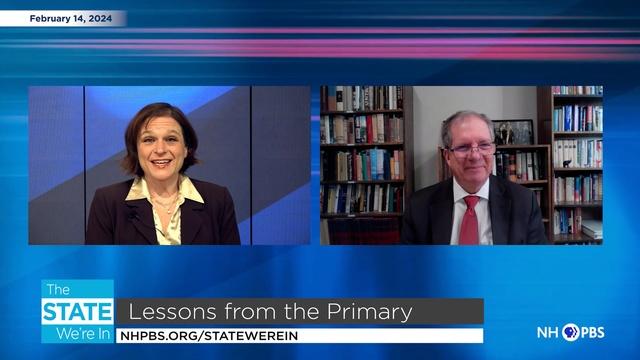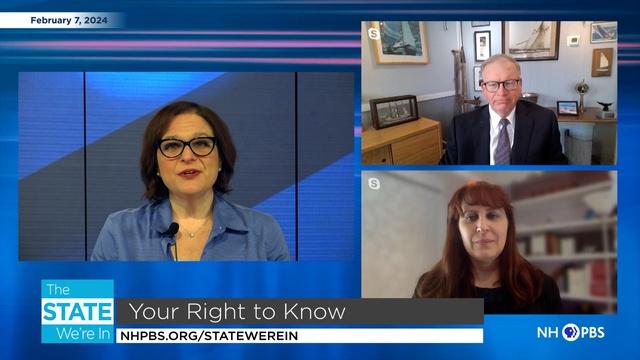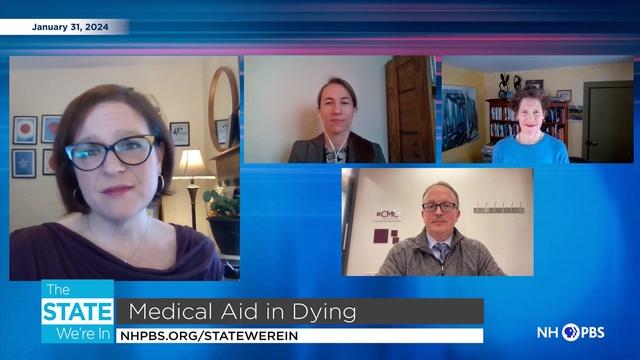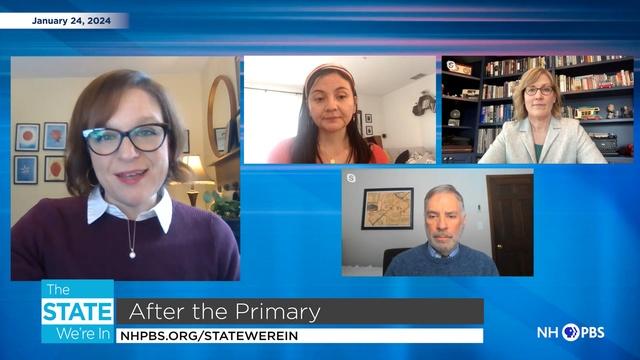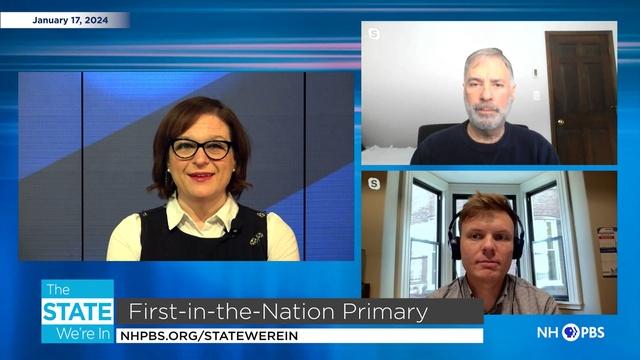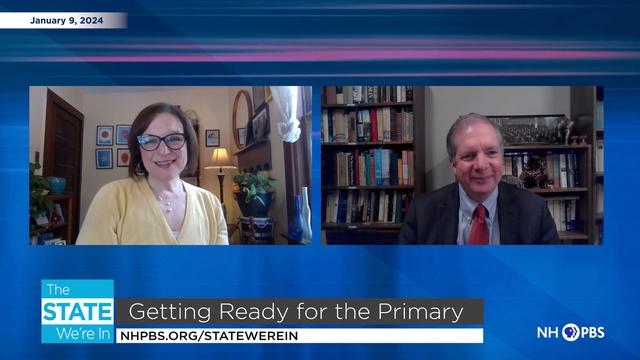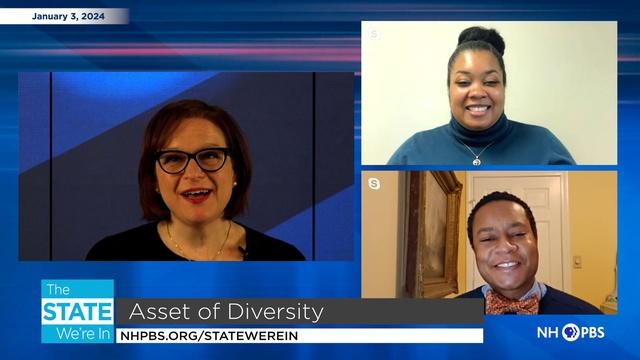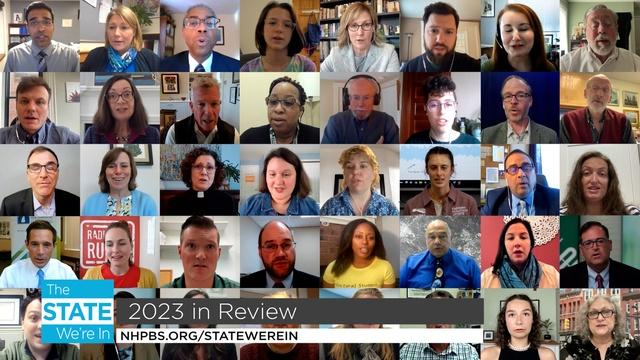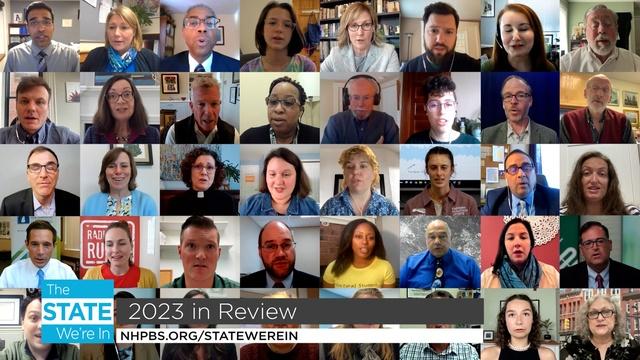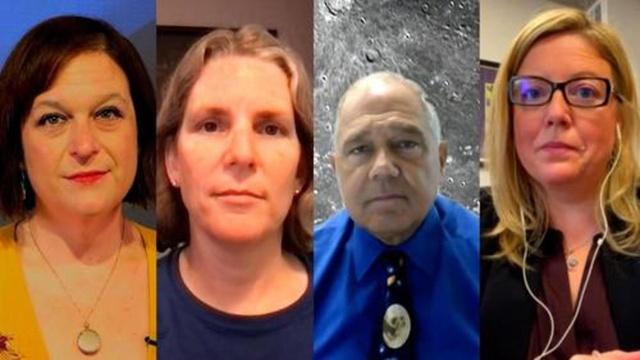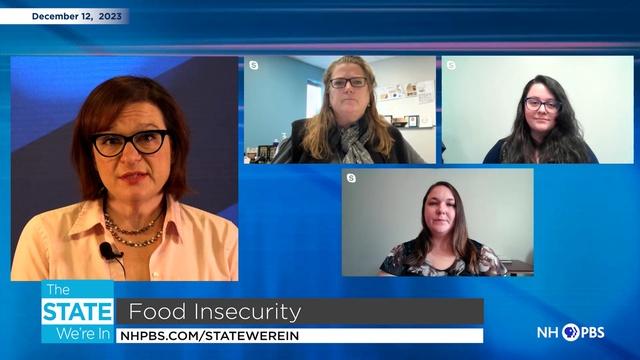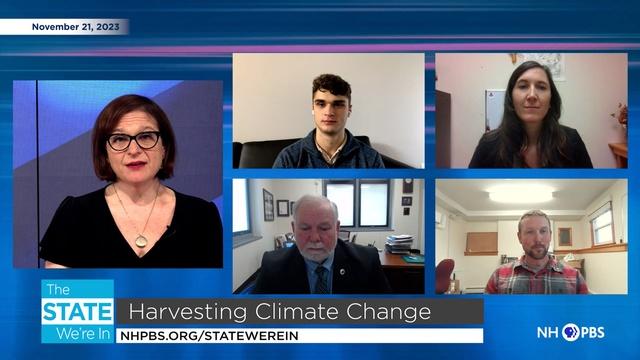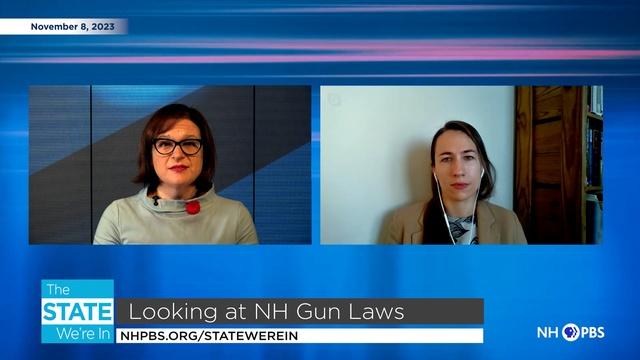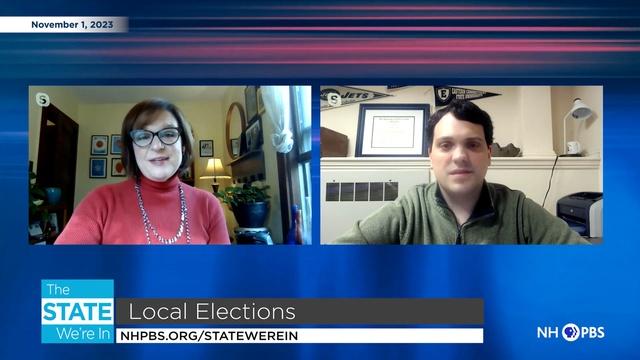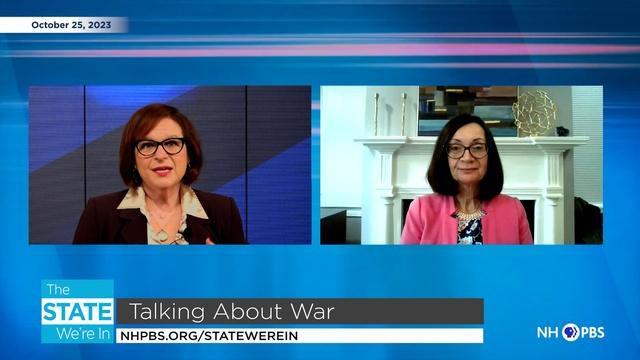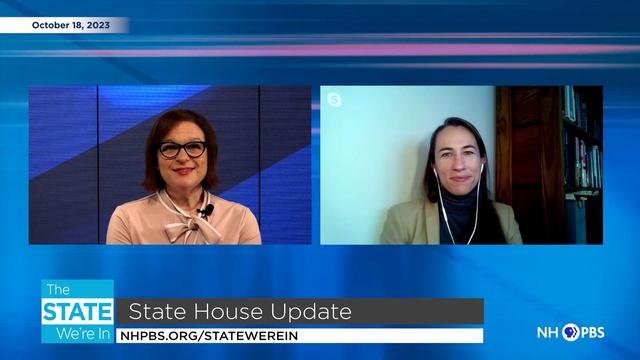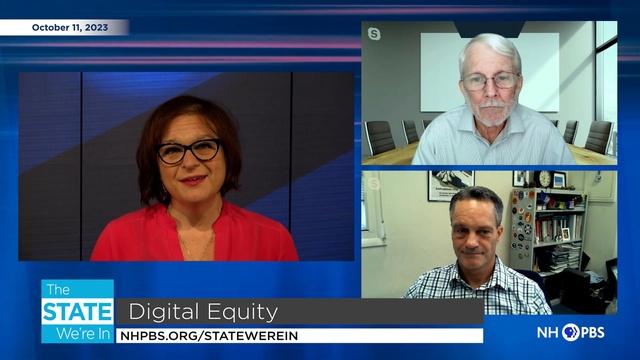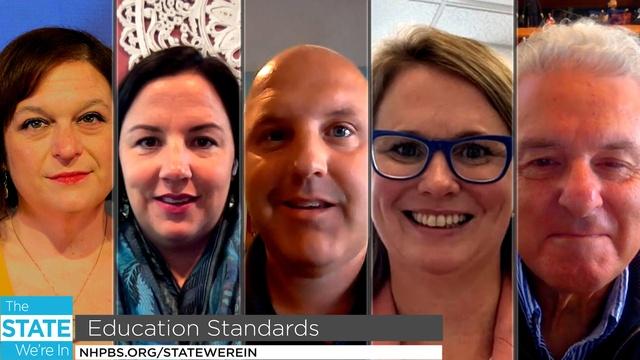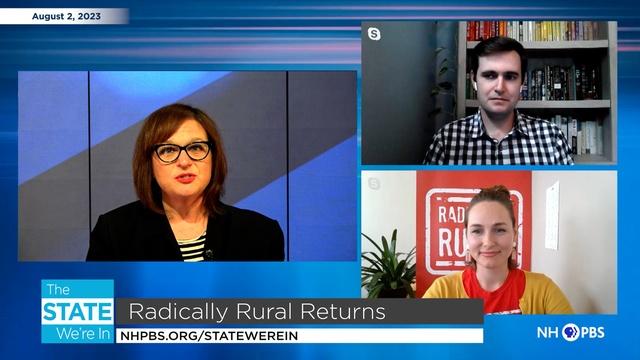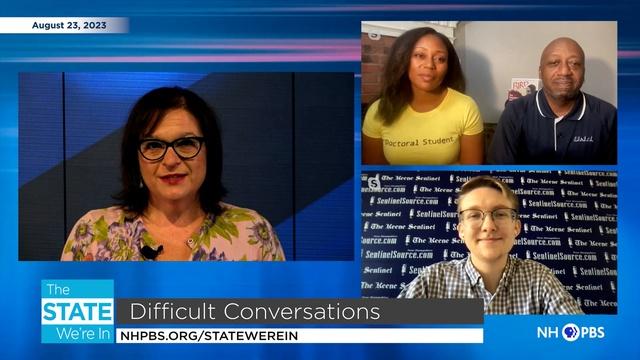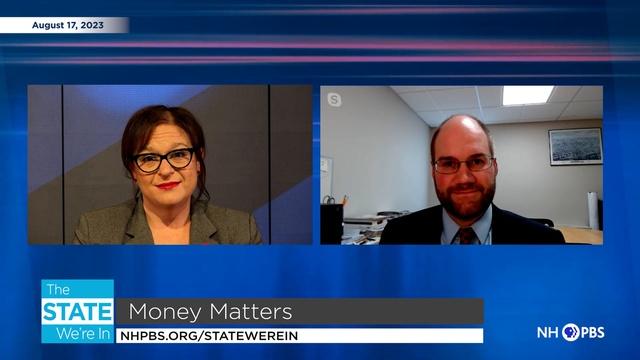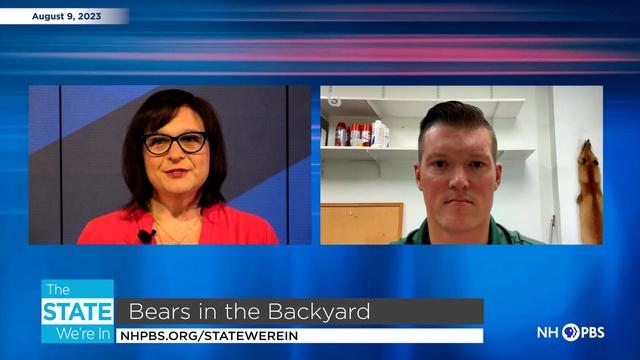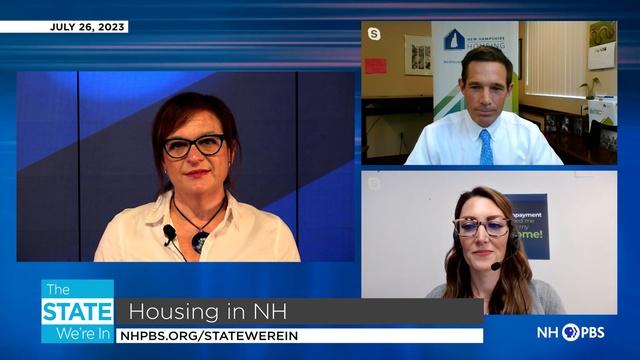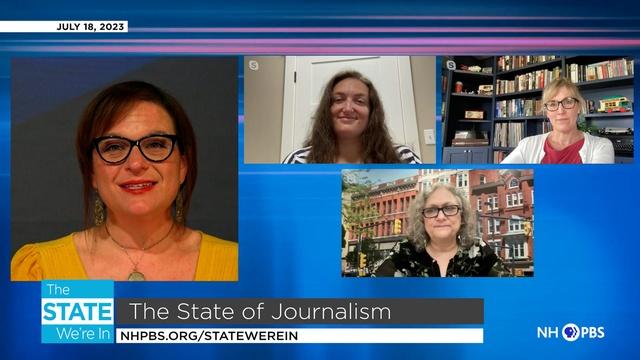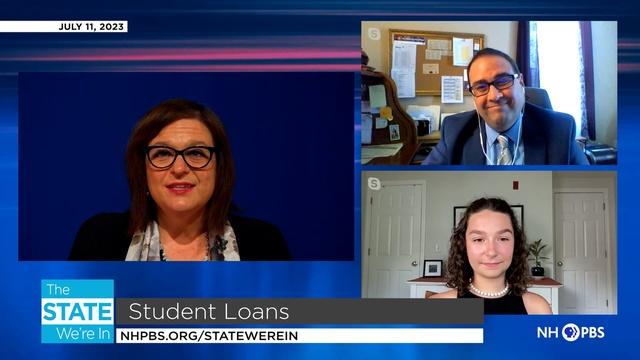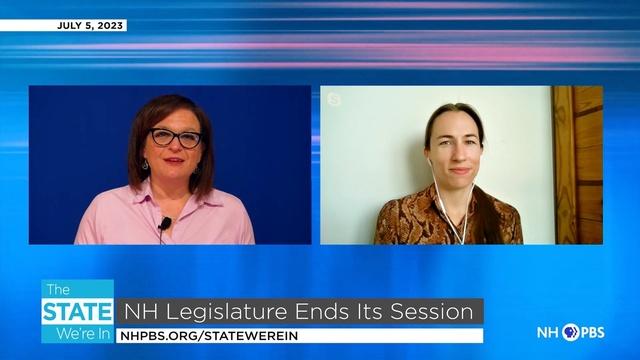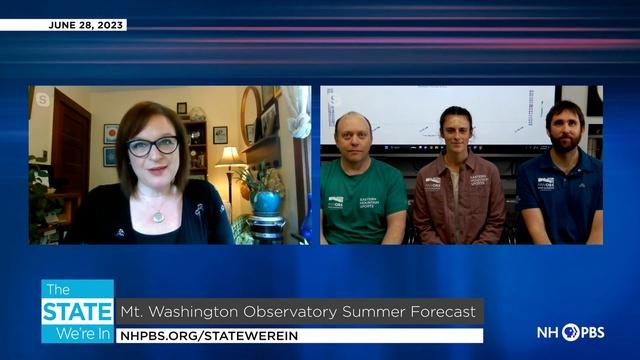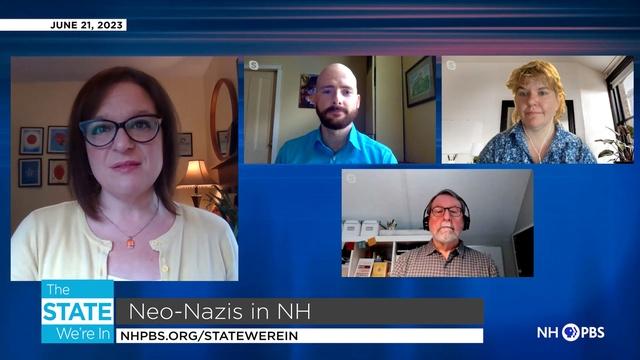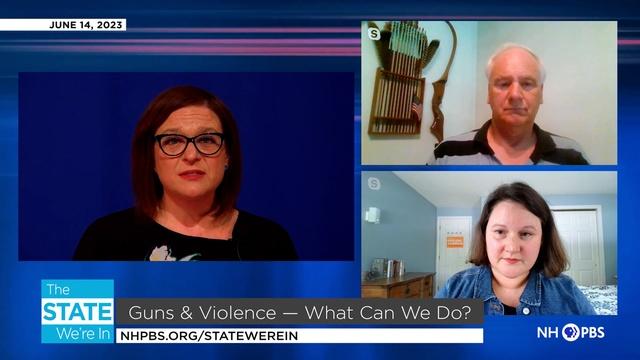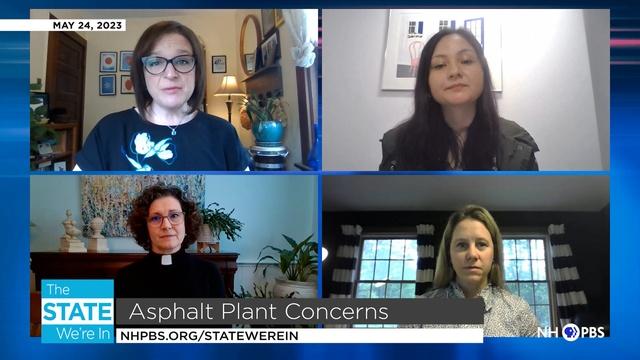The State We're In - Lead Paint
Q & A Transcript
By Rosemary Ford and Rachel Ford
At one point, lead exposure was a huge problem in the United States.
In the late ‘70s, 88 percent of children ages 1 to 5 had levels of lead in their blood that would today be considered concerning. Phasing out leaded gasoline resulted in huge declines — but hasn’t eliminated the problem.
Today, the primary cause of lead poisoning is lead paint, which lingers in many homes built before 1978. That’s a particular concern in New Hampshire, where more than half of homes were constructed before that date.
As part of an ongoing series about environmental justice, the Granite State News Collaborative reporters and NH Bar News have teamed up to look at environmental challenges facing New Hampshire families. In this series of stories, the team explores why lead paint is still a problem in New Hampshire and what’s being done to clear homes of this hazard, particularly for children living in poverty.
Joining The State We’re In host Melanie Plenda this week are Scott Merrill (editor at NH Bar News), Kathie Ragsdale (reporter for the Granite State News Collaborative), John Bassett (data and research editor for the Granite State News Collaborative), and Paul Cuno-Booth (reporter for the Granite State News Collaborative).
This content has been edited for length and clarity. Watch the full interview on NH PBS's The State We’re In.
Melanie Plenda: Paul, can you give us a brief history of lead contamination in New Hampshire? What does that affect here?
Paul Cuno-Booth: The first thing to know is that lead exposure has really declined over the past few decades with the phasing out of leaded gasoline. It used to be a far more common problem for children to be lead poisoned, but it's still an issue. The primary route for exposure is lead paint in older houses. Particularly in New Hampshire, more than half of our housing stock was built before lead paint was banned in the seventies, so there's hundreds of thousands of houses that may have lead contamination, and children under six are living in many of them. In 2019, almost 600 New Hampshire children tested with elevated blood lead levels, and public health experts say it certainly warrants attention.
Melanie Plenda: Kathie, you spoke with the Lenos, a family that's learned all too well the dangers of lead poisoning. Can you explain what happened with that family?
Kathie Ragsdale: They found themselves in need of new housing when the building they were living in was sold and they were thrilled to find a place in Claremont, an older building that was spacious and within months they moved in with three of their four kids - the older one was out of the house by then. Within months, one of the infant twins - Matthew - was having night terrors and constipation. He had previously been stringing together his first words, and he suddenly stopped speaking so they took him to the doctor. Within the few months they lived in that home, the two twins had blood lead levels of something like seventeen and eighteen micrograms per deciliter, which is far above what was considered safe. In that time, Matthew has been found to have a very low IQ, he is being homeschooled because he was getting bullied, he has a variety of developmental disabilities, and according to doctors he will probably never drive or hold a job or do some things that they'd hoped for when he was born.
Melanie Plenda: How does lead paint become an issue with children, and how is it ingested typically?
Kathie Ragsdale: I thought typically it was from eating lead paint chips, but that is not the case. We did have a very high profile case a few years back of a two year old Sudanese girl who had a condition called PICA where you eat non-food items, and she was eating lead paint chips on the porch of her Manchester apartment, and she died from lead paint poisoning. More typically it's from little kids when they reach toddler age, they start to toddle and they grab hold of window sills and things like that, where they touch lead paint dust and then put their hands in their mouth.
Melanie Plenda: John, you collected a lot of data looking at lead paint in New Hampshire, so who is affected most by this and how does New Hampshire compare to other states?
John Bassett: The number one the number one way that a kid would ingest lead or would get lead in their system is through paint in their house, so the question then is where are houses that were built before 1980? 1978 was the year lead was no longer being used in paint, so where are the pre-1980 houses in New Hampshire? Well, they're spread all over the place, but there are some places that they can be found in, especially high concentrations. We found through using some census data that six of the ten neighborhoods or census tracks that have the highest percentage of pre-1980s homes are all in Manchester, so Manchester does have a higher concentration of this but regionwide New Hampshire is doing quite well. Including New York, out of all of the states in the Northeast, New Hampshire has by far the lowest percentage of houses that were built before 1980. New York at the top of the list has about 78% of their homes were all built before 1980. To contrast, just over half in New Hampshire were built before 1980.
Melanie Plenda: Kathie, what can parents do if they are worried about lead paint in their home?
Kathie Ragsdale: Dr. Allen Wolf, a pediatrician at Harvard medical school, said if your child has indeed been exposed, one thing you can do is make sure your diet is high in iron, calcium, magnesium, and vitamin D as well as have your kid wash their hands frequently. If they do start to show any sign of developmental disability, get some educational intervention early on, because that will really help. They can also do common sense things like dusting your window sills or damp mopping them. Heidi Leno, the mother of Matthew, also suggests that when you move into a place to make sure you get documentation from the landlord about how old the house is, whether it had lead paint, and be alert to any changes in your kids that you might see because that could be a sign of a developmental disability that may be related to lead paint poisoning.
Melanie Plenda: What help is available for homeowners or landlords to get rid of lead paint?
Paul Cuno-Booth: There are several grant programs in the State; Sullivan county, Manchester, and Nashua all have their own. For the rest of the state, the New Hampshire Housing Finance Authority has one. These are programs that offer grants to homeowners or landlords to inspect and then remove lead hazards from units. The people we spoke to for the story said there's more money than ever coming in from the federal government to do lead removal. There's millions of dollars between these four programs, but it is still a drop in the bucket compared to all the pre 1980 homes that we have. In addition to these grants, there's also a state loan program that offers deferred loans to further help with those costs. It's essentially a loan that attaches to the home and doesn't have to be paid back until the home is sold.
Melanie Plenda: Scott, what's worked so far and what do you think are the roadblocks to reducing lead poisoning?
Scott Merrill: One of the roadblocks I think was the lack of contractors to remove lead hazards. I wanted to also point out Charlene Lovett's work in Claremont. We didn't cover this in the article, but that's been a real success story in terms of the increasing screenings of children. They've brought in mobile units to do screenings, and they've applied for grants. This is in Sullivan county, so I thought that was noteworthy. We just didn't have space in the article to really focus on that.
Charlene Lovett is the mayor of Claremont and I think she got busy eliminating as much lead in the city as she could back in 2016 or 2017. That was around the time when there was a statewide initiative to decrease blood lead levels in children and have increased screenings for children. Having talked to her, it seemed like she was very passionate about it, and she got community buy-in partly through her diligence working on the issue, but also in a practical sense, she started applying for lots of grants and she got as much money for her city as she could.
Melanie Plenda: So, Scott, what's next in the environmental justice series?
Scott Merrill: I've been interviewing people this week about food security issues. Access to healthy food is a problem. I just got done reading a paper about the Carsi School of Public Policy and they've mapped out the entire state, showing where the lowest income folks live. There's pockets in Nashville and Manchester, but the majority of people who are living below the federal poverty line, which is about $50,000 a year for a family of four, are in Coos county and Northern Grafton county. Those are also the places where the fewest number of grocery stores exist or have lack of access to farmed foods. We’re looking forward to diving into that issue. The Conservation Law Foundation is working on a project right now as well, which is helping small farmers with legal questions that they might have in terms of zoning issues and things like that, so I'm gonna be speaking with those folks and hopefully we can get this off the ground soon.
These articles are being shared by partners in The Granite State News Collaborative as part of our race and equity project. For more information visit collaborativenh.org.
Watch Online
The Monitor's Seized and Sold
A look at the Concord Monitor's "Seized and Sold" series, which examines evictions and foreclosures.
Return to the
The State We're In
Main Page
Support for The State We're In is provided by New Hampshire Charitable Foundation, Eversource and Hitchiner Manufacturing Co., Inc.
The State We're In is produced in partnership with the Granite State News Collaborative and the students and staff of the Marlin Fitzwater Center for Communication at Franklin Pierce Unversity in Rindge, NH.
How can we beat the heat?
Heat waves in New England, is this our future?
Juneteenth
As the oldest known nationally celebrated event commemorating the end of slavery in the US.
Granite State Homelessness
The first in a series about homeless in the Granite State.
State House Update - 6/5/24
An update on the latest bills before the Legislature.
Waste Not, Want Not
Host Melanie Plenda and guests discuss food waste and how to keep it out of landfills.
Holding Back the Ocean
Host Melanie Plenda speaks about flooding impact on critical state infrastructure.
Youth Mental Health
Examining the Mental Health of high school students.
Preventing Child Abuse
A look at preventing child abuse in New Hampshire.
Educational Standards
A look at proposed revisions to the state's educational standards, also known as 306s.
Housing Solutions
Host Judi Currie speaks with community planners and affordable housing advocates.
April 8 Solar Eclipse
Host Melanie Plenda talks about the upcoming eclipse with guests.
2024 Local Elections
Host Judi Currie speaks with several experts on the key issues surrounding the election.
Impact of Climate Change on Skiing in NH
Melanie Plenda speaks with freelance journalist Beatrice Burack about her series.
Poverty & Food Insecurity Following the Pandemic
Poverty and food insecurity rates here before, during and after the pandemic.
What to Know About AI in NH
Host Melanie Plenda discusses the ins and outs of artificial intelligence.
Young Legislators
State Reps. Jonah Wheeler and Valerie McDonnell join host Melanie Plenda.
Lessons from the Primary
Secretary of State David Scanlon discusses the New Hampshire primary.
Your Right to Know
We discuss HB 1002, which would allow public bodies and agencies to charge up to $25/hr.
Medical Aid in Dying
The NH House Judiciary Committee will hold a hearing on HB1283.
After the Primary
A discussion about the NH Primary results.
First-in-the-Nation Primary
We talk to veteran reporters about the upcoming New Hampshire Primary.
Getting Ready for the Primary
The New Hampshire presidential primary will take place on January 23rd.
Asset of Diversity
Members of the Business Alliance for People of Color discuss how diversity can be an asset
2023 - Compelling Quotes
The best quotes from 2023.
2023 in Review
A look back at "The State We're In."
Nature's Super Bowl
Learn about two upcoming eclipses with prime viewing spots in New Hampshire.
Food Insecurity
Staffers from the NH Food Bank discuss food insecurity in New Hampshire.
NH School Funding
Learn about the recent ruling that could change the way public schools are funded in NH.
Harvesting Climate Change
Melanie Plenda speaks with local agricultural experts about climate change.
Looking at NH Gun Laws
New Hampshire's gun control laws and preventing a mass shooting.
Local Elections
The importance of local elections and how to prepare for them.
Talking About War
How do you talk to kids about gun violence and war?
State House Update
Citizens Count's Anna Brown discusses some of the bills the state Legislature will tackle.
Digital Equity
Bridging the digital divide in New Hampshire.
Fall Health Outlook
Infectious disease expert Dr. Michael Calderwood talks about the fall health outlook.
Education Standards
A look a proposed revisions to the state's educational standards, also known as 306s.
Radically Rural Returns
The popular small town summit is back for a sixth installment.
Difficult Conversations
Different approaches to the same goal.
Money Matters
More New Hampshire residents are finding it difficult to afford everyday expenses.
Bears in the backyard
More bears are showing up in backyards and social media feeds.
Housing in NH
The 2023 NH Residential Rental Cost Survey Report and what it means for NH residents.
The State of Journalism
Host Melanie Plenda talks through the state of journalism in New Hampshire.
Student Loans
Host Melanie Plenda talks with Financial Aid Professional and a recent grad about debt.
NH Legislature ends its session
Host Melanie Plenda talks with Citizens Count's Anna Brown.
Mt. Washington Observatory Summer Forecast
Host Melanie Plenda speaks with scientists from the Mount Washington Observatory.
Neo-Nazis in NH
Host Melanie Plenda talks about combating hate and misinformation around a drag story hour
Guns & Violence -- What can we do?
Host Melanie Plenda looks for common ground from two perspectives.
Asphalt Plant Concerns
Hear concerns about a proposed asphalt plant in Nashua, which has residents worried.
